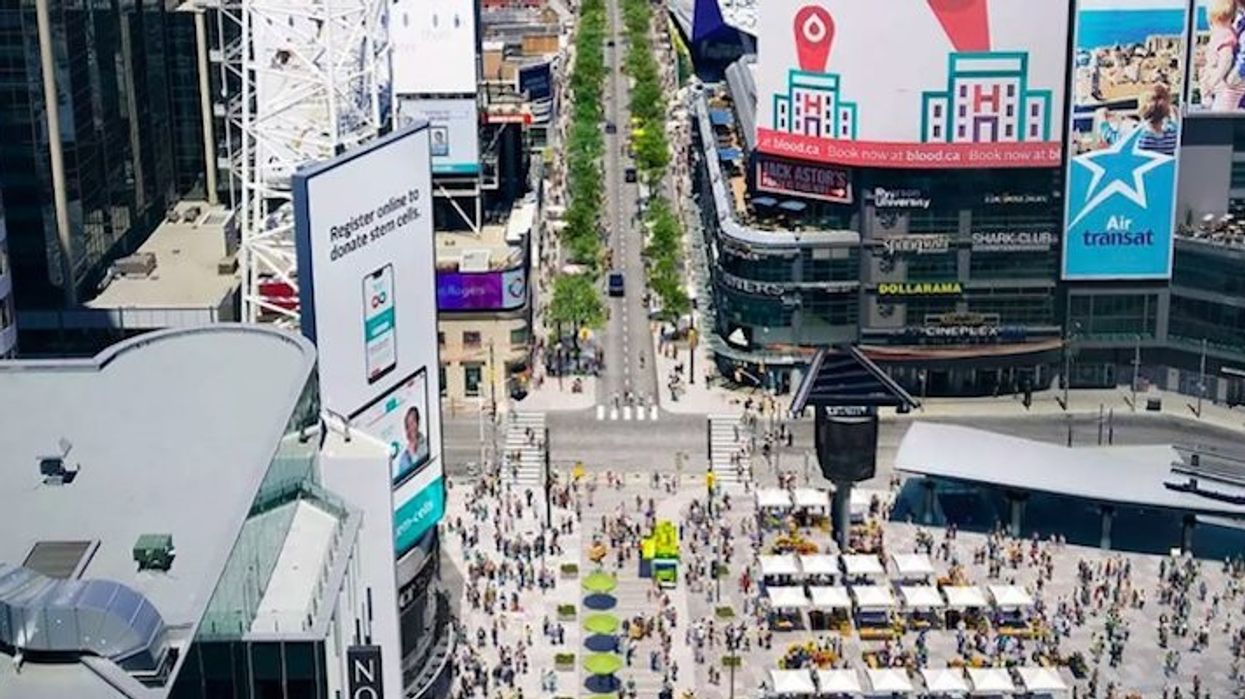Major changes are coming to Yonge Street after City Council voted in favour to approve the YongeTOmorrow plan, which would see the major downtown street transform to welcome one-way sections, “pedestrian priority” zones, and the addition of cycling tracks.
The proposed plan would see significant changes be made to Yonge Street that would allow for increased pedestrian space and improve the way people move through and experience Yonge Street between College/Carlton Street and Queen Street.
The changes include reduced lanes of traffic, pedestrian-only zones, protected bike lanes, and more sidewalk space for patios and greenery.
Presently, the water main beneath Yonge Street will soon need replacing and this construction provides an opportunity to consider a new street design to better serve everyone.
READ: Public Consultation Now Open for Major Changes to Yonge Street
On Wednesday, Council voted to approve the YongeTOmorrow plan, though it wasn’t entirely unanimous, with 21 councillors in favour and five against.
Following the vote, Councillor Kristyn Wong-Tam, Ward 13 - Toronto Centre, who has been a vocal advocate of YongeTOmorrow, celebrated the victory, saying the project has been ten years in the making.
“Thank you to the residents, biz owners, thought leaders, cultural mavens who spoke in support of this big urban transformation,” Wong-Tam said. “Yonge St is a project 10 years in the making and today’s historic vote solidifies its bright future!”
The recommended design concept proposes a consistent, yet flexible road design that can accommodate different operations and programming and include 6-metre-wide, two-lane roadways with mountable curbs and vehicular unit paving; 2.7-metre-wide furnishing, planting, and café zone, and 4-metre-wide (minimum) pedestrian clearway with pedestrian unit paving.
"During the day, from College Street to Queen Street, Yonge Street would be a place focused on the movement and experience of people walking, cycling, and connecting to transit, rather than way to get through the downtown core by driving," reads the YongeTOmorrow plan.
“Driving circulation during the daytime would provide vehicle access to support parking garages, loading, deliveries, ride-hail, tour buses, Wheel-Trans and municipal services while maintaining a pedestrian-focused streetscape."
However, during overnight hours (from 1 am to 6 am), all blocks would have two-way driving access open to support TTC night bus service, deliveries, and general traffic.
The YongeTOmorrow plan will continue to see detailed design and operations planning through 2021-2023, with construction expected to be completed in 2025.





















